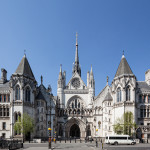
Parole hearings to be held in public
Under a law change announced by the Ministry of Justice parole board hearings of criminals' attempts to be released from jail are to be held in public for the first time.
In the biggest change since the boards were set up nearly 60 years ago ministers are to relax the requirement that all parole hearings are held in private, and allow anyone to apply to attend public hearings - including victims of crime, the media and members of the public.
The change, which is due be introduced this summer, is the first step in a root-and-branch review of the parole board system that could result in hearings operating in a similar way to other courts and tribunals, where the media, public, and victims' families, are routinely present at major cases.
Chief executive of the Parole Board, Martin Jones, favours the UK adopting the Canadian system, in which parole cases are open to victims, the media and the public. There are video screens if there is not enough space in the courtroom, and reporting restrictions to keep highly sensitive personal information secret.
Mr Jones has previously said, "I would have no problem, in a particularly high-profile case with a high level of public interest, to move the parole hearing into a court building. Why not hold a hearing where you can have victims sitting in the public gallery, and journalists watching that?"
The final decision will rest with the chairperson of parole boards but it could lead to public hearings in high-profile cases which are judged to be in the public interest, such as those of the black cab rapist John Worboys, and Ian Simms, the killer of Helen McCourt.
The Parole Board has been dogged for years over its alleged secrecy over decisions, culminating in the outcry over the decision to release rapist Worboys which was then reversed.
The Ministry of Justice and Parole Board are sensitive to the risks of "re-traumatising" victims if offenders' cases and claims are heard in public. Some evidence, such as sensitive medical information and graphic details about the crimes, may have to be heard on camera, or in some cases may be so traumatic that an open hearing would not be in the public interest. Lucy Frazer, a justice minister, said, "The Government wants victims to be allowed to attend parole hearings if they wish, but we appreciate many would find a public hearing distressing."
Both victims and prisoners will be consulted over any decision to hold the hearings in public, but neither will have the power to veto. A refusal by a board to allow a public hearing could be challenged through a judicial review, but officials may consider an alternative appeal mechanism.
A spokesman for the Parole Board said it would launch a pilot scheme, stating, "Provided there are appropriate safeguards so as not to disrupt the proceedings, the board would welcome a staged approach to opening up hearings. We agree with the Victims' Commissioner that steps should be taken to prevent re-traumatisation of victims. This is of paramount importance to any change in the parole system. We look forward to working with the press to make parole hearings more open to the public, and will be working hard to create a format to increase understanding across the board."
The Johnson Partnership
Nottingham Solicitors
01159 419141
Get in touch
with your query or requirements
Nottingham Solicitors
A difficult subject for all. You may have been accused of a motoring crime or a more serious matter such as burglary or assault.
You are entitled to and can expect expert legal support on a confidential basis.
Please call today to discuss your legal needs and the availability of legal aid.
Contact
Cannon Courtyard,
Long Row,
Nottingham,
NG1 6JE
01159 419141
Long Row,
Nottingham,
NG1 6JE
01159 419141
North Notts Business Centre,
32-34 Rosemary St,
Mansfield,
Nottingham,
NG18 1QL
01623 427575
32-34 Rosemary St,
Mansfield,
Nottingham,
NG18 1QL
01623 427575






